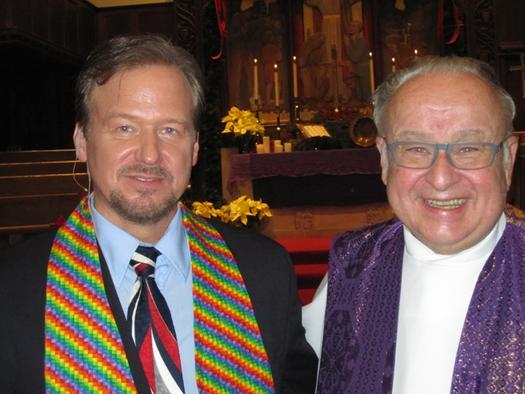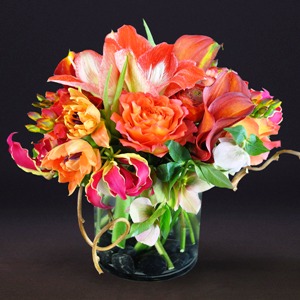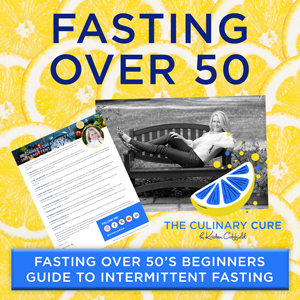Foundry Celebrates 20 Years As Reconciling Ministry

On Sunday, June 7, Foundry United Methodist Church will celebrate its 20th year as a reconciling ministry. As the larger community joins in celebrating this milestone, the church recognizes the process of opening its doors to all has been, “The journey of a growing corps of deeply committed individuals working day after day, year after year, to transform their church community into an ever-better reflection of God’s love, justice and grace. Begun by early lesbian and gay members, the inclusion movement at Foundry grew over time to include straight allies, friends and families. It is now truly a whole-church enterprise.”
In a brochure, Foundry says of its early LGBT members, “Foundry was oblivious to their spiritual needs, no more a place of safety for them than society in general.” The same brochure celebrates that “On January 22, 1977, Foundry’s Senior Minister Edward W. Bauman, preached what is now considered a prophetic sermon entitled “The Gay Life,” in which he called for greater sensitivity to the humanity and feelings of gay and lesbian people. The sermon caused a whirlwind of controversy at Foundry… but the climate of biblical grace and inclusion that pervaded his ministry began to touch Washington’s gay and lesbian community.”
A small group of people heard that sermon and began the process of moving Foundry into the light. They were going against the grain of their Institutional Church and still are. At its 1972 General Conference, the United Methodist Church (UMC) formally added discriminatory language to its Book of Discipline regarding LGBT persons. Over the years, Foundry led the charge to change that but its latest effort in 2012 again failed.
In 1979, Foundry members joined Affirmation: United Methodists for Lesbian and Gay Concerns. By the mid-1980s, gay and lesbian members of Foundry began to identify themselves openly within the congregation and assume leadership positions. The first gay couple was included in Foundry’s pictorial directory in 1984.
Church leaders say the devastation caused by the AIDS crisis moved the issue of gay and lesbian inclusion to the forefront. Members had friends, family members, co-workers, or were themselves living with and dying from AIDS. Throughout the 1990s, the AIDS mission group was one of the most active Foundry missions. Quilt panels were displayed at Foundry and the Concerts for Life raised more than $1 million for AIDS-related organizations.
In 1990, Foundry’s Council on Ministries began discussing becoming a Reconciling Congregation but there was still significant tension regarding joining the reconciling movement. On April 23, 1991, Foundry’s administrative board created a task force under the chairmanship of Dr. Arthur Flemming, a Foundry leader who had served as president of the National Council of Churches. The final report of the task force was delivered in August 1995. On Oct. 3, 1995, the vote, five years in the making was 52 to 45 and Foundry joined other United Methodist congregations “to work for change in the church affirming the call of the Gospel of Jesus Christ to be in ministry with all people of all races, sexual orientations, ages and physical conditions.” Philip Wogaman, a nationally known progressive theologian, became senior pastor and encouraged Foundry members to become involved in the denomination beyond the work of the local church.
In 2002, Dean Snyder became senior pastor of Foundry and took Foundry’s commitment to the broader community. As the marriage equality fight heated up in the District he offered meeting space and became an integral part of that fight. He put his ministry on the line by agreeing to marry gay couples at Foundry. My friend Paul Hazen, an openly gay active member of Foundry, kept me informed of what the church was doing and I attended some Sunday services with him. As a gay man and a Jew I always felt welcome when Pastor Snyder spoke. In 2012, Foundry publicly affirmed, “God’s creation includes individuals who choose to live in a gender that differs from that which they were assigned at birth.”
In 2013, the entire community stood with Foundry in support of Frank Schaefer, who was defrocked as a UMC minister for performing the marriage of his gay son. The day after Schaefer was defrocked, Dean Snyder invited him to preach and I was proud to be there the following Sunday when Schaefer preached and his family became Foundry members in an emotional service.
Today, the community joins in celebrating with Foundry whose members include “LGBTQ individuals and couples, LGBTQ families and children; all celebrated, all recognized as part of God’s creation and Foundry’s family.”
This article first appeared in Washington Blade.





